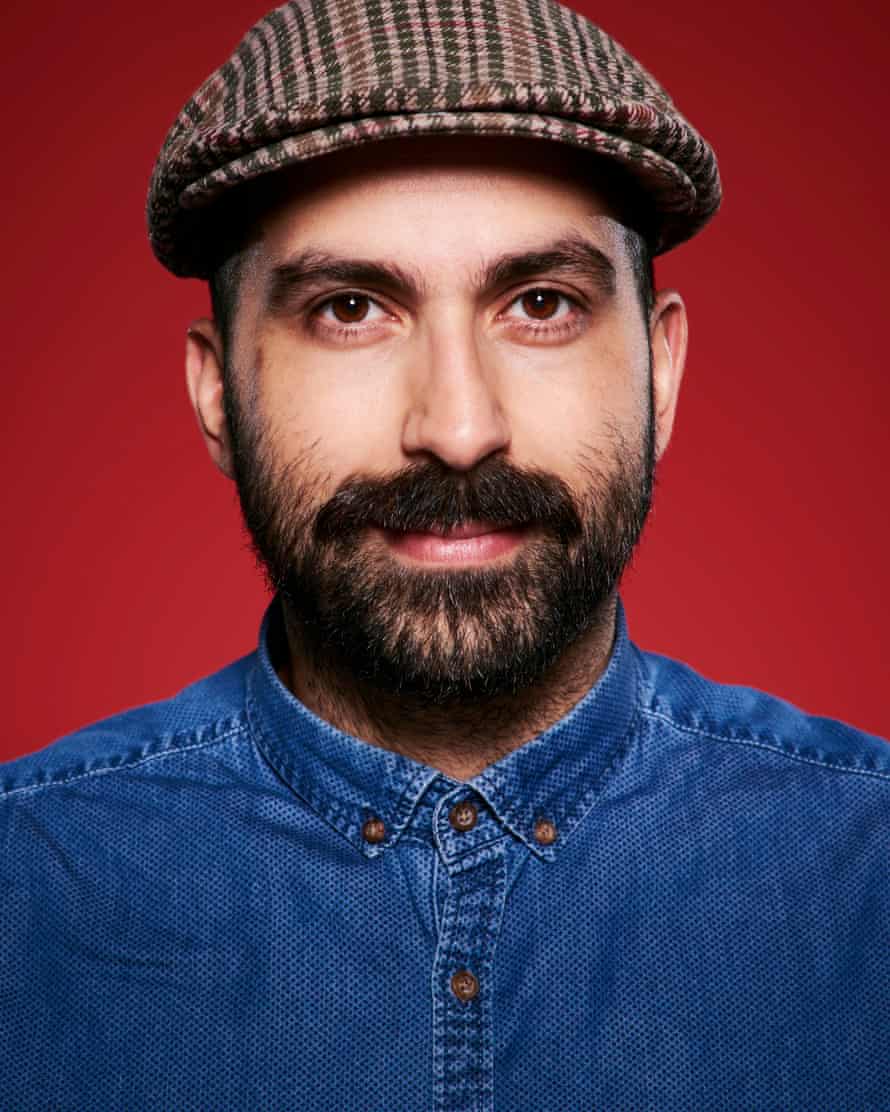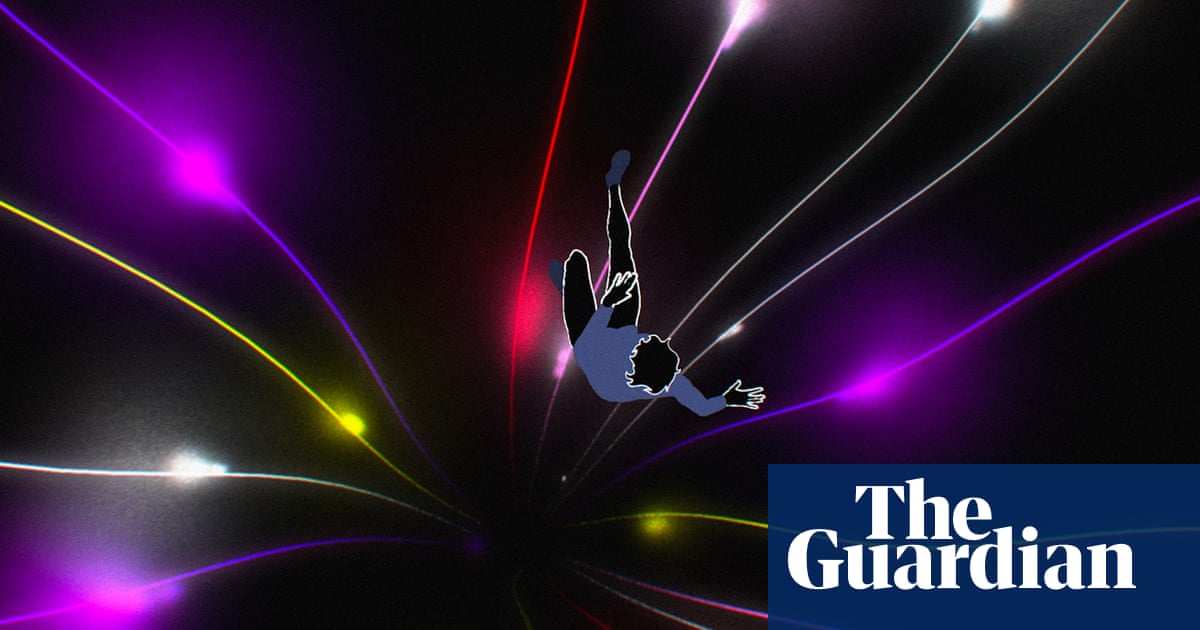Our latest Guardian documentary is the fully animated story of “Sharon”, who has been addicted to poker machines since they first arrived in Australia in 1992. This cautionary tale encompasses several real-life stories about the damage from “pokies”, adapted from verbatim interviews and combined into the figure of Sharon, a single narrative that speaks to a universal yet personal experience.
Film-maker Charby Ibrahim talks to us about his experience of making the documentary.

Why did you decide to make this film?
I remember watching the news a little while ago and coming across a report about a man who had stormed into a gaming venue and taken an axe to a bunch of poker machines (AKA slot / fruit machines). Having some understanding at the time of the extent to which these machines can destroy lives, I took more than a little joy in seeing them smashed to pieces.
The gravity of this man’s problem soon revealed itself. Having lost hundreds of thousands of dollars to these machines over the preceding years, as well as his house, marriage, and employment, these were clearly the actions of a person on the brink. And when the newscasters had the gall to joke about his distress once the cameras returned to the news desk, I felt an old fury return. So, I decided to start interviewing people about their experiences of addiction to poker machine gambling, all of whom were initially unaware of how these machines were designed to ensnare them, and to keep them gambling for hours and hours on end without any real prospect of “winning”.
How did you find your subjects?
Given the gravity of the problem here in Australia, it really wasn’t too difficult to find people who had experienced some kind of “pokies”-related gambling harm, either directly or indirectly. I reached out to non-profit organisations working in the space, and after a few online call-outs, I was inundated with folks ready and willing to discuss their experiences.
How and why did you create one story script from multiple voices?
It is often the case that the personal speaks to the universal. And although this is a film about ‘Sharon”, as voiced by Claudian Karvan, it’s really a film about everyone who finds themselves caught in the pokies’ web. I interviewed several participants who had self-identified as having had a long-term addiction to poker machine gambling. This process revealed some profoundly similar experiences in terms of their addiction journey and the potential for catastrophic harm that these machines can cause. Taking interview material verbatim, Sharon was born out of an amalgamation of these shared experiences. Her seemingly personal story, composed of several, came together to speak to the widespread and universal problem of poker machine addiction in Australia, and indeed in many countries the world over.
What was your creative vision for this project and how did it come together?
During the interview phase of the project, participants described their addiction in the most vivid language. Animation offered an opportunity to translate these visual metaphors and ideas onto the screen in such a way as to explore the emotional world of Sharon and all of those she represents. Combined with the promise of anonymity, the use of animation became a very clear choice. The dark visual style was intended to mirror the warped dream-like state that our participants described. We also wanted to contrast that visual darkness with the colourful bright lights and hypnotically annoying sounds of the machines themselves, often bringing them to life as another character in the film.
How do you think it speaks to current times?
With many gaming venues around the world forced to close their doors due to this global pandemic, there was hope that we’d see a reduction in pokies-related gambling harm. Instead, what we’ve seen is a steep increase in online pokies gambling; games and apps that implement all the old addiction inducing tricks of physical machines, without any oversight, accountability, and regulation. The fear is, that even once the venues open back up, many will have developed an equally destructive online habit to boot.
What is your hope for gambling reform?
Here in Australia, we have over 20% of the world’s poker machines, and yet we have only 0.3% of the world’s population. These machines aren’t restricted to the casino gaming floor, they line the walls of most suburban pubs, clubs and hotels. It’s clear too that they are even more concentrated geographically in neighbourhoods that can least afford to have them. The problem seems to be in the design of the product itself, and the lack of adequate warning offered to users. We’ve long appreciated the addictive qualities and harmful impacts of cigarettes, alcohol and drugs. And although those with vested interests eventually came along kicking and screaming, it’s hard to imagine those products going unregulated today.
As a very first step, we need to see similar campaigns that are aimed at properly educating people of the potential harm that these machines can cause, including clearly visible disclaimers that the product is highly addictive and that the odds are heavily stacked against the user.
What impact do you hope this film will have on the viewer?
From the outset, the intention was pretty simple: I wanted to offer audiences the opportunity to see just how destructive these seemingly harmless “gaming” machines can be. I wanted to show how regular folk can unwittingly become addicted through no fault of their own; how these machines have been designed for that very purpose. If after watching the film, folks recognise problematic behaviour in somebody around them, or indeed in themselves, it’s my hope that they might be better placed to seek professional support. Beyond that, I’m hoping that people are energised to apply pressure on venues to move away from business models that are reliant on income from these machines, and to vote in members of parliament who are staunchly anti-pokies.
About the film-maker
Since graduating with a Masters in documentary filmmaking from the Victorian College of the Arts in 2017, Charby Ibrahim has continued to experiment with documentary form. He is particularly passionate about creative filmmaking for social change and working with other filmmakers from diverse backgrounds. His first fully animated hybrid documentary, The Holiday Inn-Side, depicted the inner torment of children caged in juvenile prisons. It earned him an Australian Directors Guild nomination, before making its way on to the long-list for the 2020 Academy Awards in its category. Ibrahim is currently in production on another part-animated documentary, Life After Juvie, a film that looks at the ongoing challenges faced by these young people after their release from prison.
Watch more Guardian documentaries here.
Sign up for the Guardian documentaries newsletter here to be the first to hear about new releases and exclusive events.
